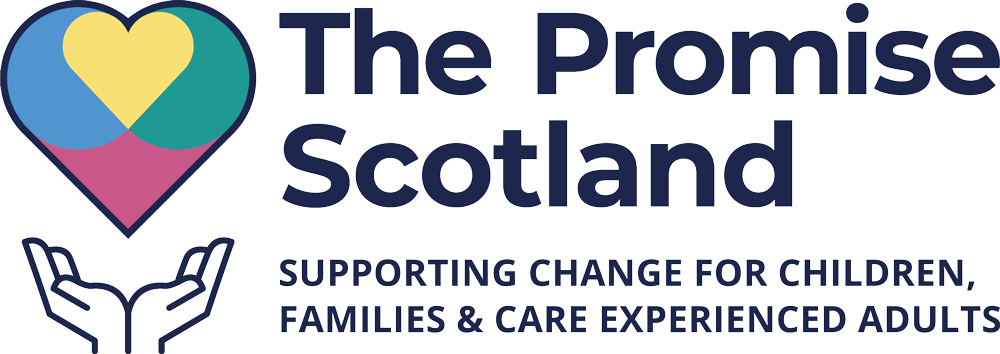Fiona Duncan: One question and one question only series: What are the opportunities offered by a National Care Service?
On 9 August the Scottish Government commenced a 12-week consultation on the creation of a National Care Service. Their proposal is that the National Care Service also includes children’s social work and social care services.
There has been support and dissent from across sectors and professions and it’s clear that many organisations and services are thinking carefully about how a National Care Service will impact their work and the people they support.
Over the course of three years, thousands of children, young people and families selflessly shared their most intimate, sometimes painful and traumatic, experiences with the Independent Care Review. It was their stories and generosity that informed its conclusions which told Scotland what must change. Last February, their voices were heard, when the promise report was accepted in full, and a promise was made.
As I wrote when the consultation was launched, The Promise Scotland’s response will be guided by one question only: will it #KeepThePromise?
To answer this, The Promise Scotland team have begun the detailed process of assessing the implications of the proposed National Care Service. They are revisiting the Independent Care Review’s Evidence Framework to assess the benefit – or otherwise – to each of its 80+ conclusions. They are re-examining the cross-referencing work they carried out in February of this year when the Review of Adult Social Care published its 53 recommendations, to map against the Independent Care Review conclusions published the February before.
They are also assessing the implications on the live implementation plans to #KeepThePromise. This involves considering the impact of the creation of a National Care Service on Plan 21-24, the first of three 3-year plans sequencing and outlining what is required to #KeepThePromise. Plan 21-24 was devised collaboratively late last year with input from hundreds of individuals representing over 100 organisations, all committed to change, who all engaged directly with The Promise Scotland. This included local and national government, national bodies and agencies, local and national organisations across public, third and private sectors and those with statutory responsibility for children and families. Carefully sequenced to ensure forward progress towards keeping the promise with cross-sector, multi-agency buy-in, Plan 21-24 still has over two years of work ahead.
Progress is being tracked by The Promise Scotland, who worked very closely with the 50 organisations that need to change first or change most to develop Change Programme ONE which provides a snapshot of movement against the five priority areas, 25 actions and five fundamentals of change.
Can these jigsaw pieces slot together with the National Care Service to #KeepThePromise?
There is still a great deal to be done before The Promise Scotland can reach an answer, rooted in evidence, to that question. And while work is taking place to do that, The Promise Scotland’s purpose to continue to lead and drive change will not be stalled.
It is clear that there are shared opportunities, challenges and risks of a single National Care Service, and these are no doubt occupying the thoughts of many of us, regardless of sector, experience or profession.
What follows next is a consideration of some of the opportunities for positive change that the proposal could offer.
Babies, infants, children, young people and adults are all part of families and communities - an ideal National Care Service would focus on what matters, and give a holistic response to anyone who is in need of support, considering and understanding properly the context of their whole life and others in it. A single pathway when help is needed could cement over the cracks that the current disjointed service provision creates and which so many fall into and get lost. A shared, clear language, which is inclusive and doesn’t stigmatise or ‘other’ would dissipate communication barriers between those who need support and those who give it, go a long way to creating a culture, and help dissolve silo-working across services. There should be no use of the word ‘respite’ in children or adult’s care.
The promise report identified the importance of measuring what matters to children and families, rather than to the ‘care system’. Plan 21-24 and Change Programme ONE set priorities and actions to do this and work is underway. If the right processes were in place, a National Care Service could improve upon the completeness and quality of data, which means services could be redesigned to better understand and support everyone. The Promise Design School, which offers people with care experience the training and skills to collaborate and design public services, could be expanded to include all people with lived experience of state support.
Macro change levers, such as money, legislation and governance are of relevance across all social care. The Promise Scotland continues to work on identifying solutions to using these levers, and this work could expand to encompass adult social care too.
And as the Independent Care Review identified, and as detailed in Change Programme ONE, of the 43 Scottish Government directorates, 26 have an interest in implementing the promise. This encompasses 49 of 117 policy areas and spans the responsibilities of five Cabinet Secretaries and nine Ministers. Creation of a single care service would lend itself to better policy cohesion necessary for connected whole-system change.
There is so much complexity to grasp and weigh up and intended – and unintended – consequences to be carefully considered. And before embarking on such a shift in how social care is provided in Scotland, we must completely understand what the impact will be on every child, adult, family and community.
Next in The Promise Scotland’s series on the National Care Service will be an exploration of the risks and challenges, including the fear of creating new and more ‘system’ and the dangers of a subsuming a smaller ‘service’ into a larger one.
About the author

Fiona Duncan
Independent Strategic Advisor
Fiona Duncan is the Independent Strategic Advisor - the promise, and advises Scottish Ministers in this capacity.
